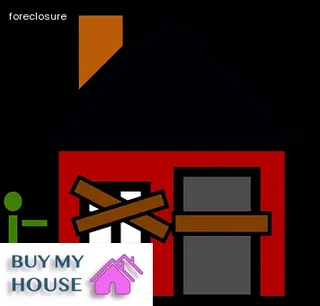In a short sale, the role of the mortgage lender is integral to the process. After a homeowner has submitted a request for a pre-approved short sale, the lender must review it and come to an agreement on the terms of the sale.
If approved by the lender, they will negotiate an amount with potential buyers that they are willing to accept as payment in full for the loan balance owed. The mortgage lender will then set up a closing date where all parties involved can execute documents that will finalize the transaction.
In addition, it is important to note that all parties must sign off on any settlement agreement prior to closing on the property. The mortgage lender also has control over when funds are disbursed following closing and ultimately determines when title transfers from seller to buyer.
Without the approval and participation of the mortgage lender, a pre-approved short sale could not take place.

Qualifying for a short sale in real estate can be a difficult and complicated process. Generally, to qualify for a short sale you must demonstrate financial hardship and be able to demonstrate the inability to make payments on the current mortgage.
In order to meet the requirements of a lender, it is important that you provide documents such as bank statements, pay stubs, tax returns, and proof of income. Additionally, you will need to prove that your current financial situation is unlikely to improve and that your assets are not sufficient enough to cover the cost of your mortgage.
Furthermore, if you are unable to meet the minimum loan-to-value ratio required by lenders then you may still be approved for a pre-approved short sale based on certain criteria. It is essential that potential buyers understand what is required of them in order to qualify for a pre-approved short sale as this can help them secure their dream home without having to worry about long term debt or legal ramifications.
Short sales in real estate are an attractive option for many homeowners, as they offer several advantages over regular sales. One of the primary benefits of a short sale is that it can help to avoid foreclosure.
By selling the home for less than what is owed on the mortgage, homeowners can pay back their debt and avoid being evicted from their property. Additionally, short sales can be faster than traditional sales, as they are pre-approved by lenders before being put on the market.
This makes them attractive to buyers who want to move quickly into their new home. Another benefit of a short sale is that it can save homeowners money in closing costs and other related expenses, as lenders may waive some or all of these fees in order to get the loan paid off quickly.
Finally, sellers may also receive certain tax benefits by completing a short sale instead of allowing their home to go into foreclosure. These tax incentives can provide welcome relief during an already difficult situation.

Purchasing a home through a short sale process can be complicated and daunting, but for some prospective buyers, the potential benefits outweigh the drawbacks. A pre-approved short sale involves a seller who is facing financial hardship and is looking to sell their property quickly at an amount less than what is currently owed on the mortgage.
The lender must approve of the transaction before it can be completed. On one hand, buying a short sale home can be advantageous because the buyer can purchase it at a discounted rate due to the seller's motivations to get rid of it quickly.
This could end up being a great deal for those who are looking for an affordable property in an area they desire. On the other hand, there are certain drawbacks that should also be considered when making this kind of purchase.
Short sales often involve lengthy negotiation and approval processes with banks, which can take months if not years to complete. Additionally, buyers may not have access to inspect or appraise the property prior to purchasing it so they may not know what they are getting into until they actually move in after closing.
Therefore, it is important for prospective buyers to understand both the pros and cons before entering into a pre-approved short sale agreement in order to make sure that it is truly worth their time and money in the long run.
In order to understand short sale negotiations, it is important to have an idea of what pre-approved short sales are. Pre-approved short sales occur when a home seller is unable to pay the mortgage and the lender agrees to accept less than what is owed on the loan in order for the house to be sold.
During the process of negotiating a short sale, lenders consider both financial and non-financial factors such as hardships which motivated the homeowner to pursue a short sale. It is also important for homeowners to understand that they do not necessarily need to prove hardship in order for their request for a pre-approved short sale to be accepted.
The real estate market conditions and other details of the transaction must also be taken into consideration. As part of the negotiation process, it is important to ensure that all parties involved are aware of all costs associated with a pre-approved short sale so that everyone can make an informed decision about whether or not this option is best suited for them.
Additionally, homeowners should research potential buyers before accepting any offers for their property in order to make sure that they receive fair market value for their home. Ultimately, understanding how pre-approved short sales work and being aware of all aspects of negotiations can help homeowners make smart decisions when selling their property through this process.

When considering a short sale for your home, it is important to understand the process. The first step is to consult with a real estate professional who has experience handling short sales.
They will be able to provide valuable advice and insight into the process, as well as explain any potential risks associated with the transaction. Additionally, it is important to research the buyer's financial situation carefully in order to ensure that they are qualified to purchase your home through a short sale.
Once you have identified an interested buyer, you must contact your lender and submit an application for pre-approval of the short sale. Your lender will review your financial situation and approve or deny the request based on their own criteria.
If approved, they may require additional documentation or conditions before they finalize their approval of the transaction. Finally, once all parties have agreed on terms and everything has been submitted to the lender, you can close on the sale and move forward with completing the transaction successfully.
Before you agree to a short sale, it is important to understand the process and all of the potential implications. It is important to consider your financial situation and whether or not this type of agreement is in your best interest.
You should also take into account the value of your property and any tax consequences that may result from entering into a short sale agreement. Additionally, it's important to be aware of the timeline associated with pre-approved short sales as well as any fees or charges that may be due at closing.
It is advisable to speak with a real estate attorney or other qualified professional before agreeing to a short sale in order to ensure that you fully understand the terms of the agreement and are making an informed decision about your financial future.

When it comes to pre-approved short sales in real estate, understanding the tax implications is incredibly important. Depending on the situation, a buyer might be able to claim a deduction for the forgiven debt, while sellers may have to pay taxes on any canceled debt that was used to purchase or improve the property being sold in a short sale.
Additionally, since short sales often result in reduced mortgage balances, buyers should also consider the potential capital gains taxes they will owe if the home's value increases after purchase. Furthermore, buyers and sellers should be aware that there are certain exceptions which may allow them to avoid paying taxes at all.
In any case, it's vital for both parties to consult with a qualified accountant or tax specialist before making any decisions about a pre-approved short sale in order to fully understand their tax obligations and rights.
Purchasing a short sale property can be a great way to get a deal on real estate, but it is important to understand the process of pre-approved short sales before jumping in. Pre-approved short sales are typically backed by the lender and require more paperwork than other real estate transactions.
It is also important to consider if you will be able to get financing on the purchased property since there are often limitations from lenders. Depending on your financial situation, you may need to seek alternative financing options like private or hard money lenders who have fewer requirements for qualifications and approvals.
You may also need to provide additional documentation or have higher interest rates due to the lack of traditional loan programs available for short sale purchases. Taking time to research all of your options and understanding the process can help ensure that you make an informed decision when considering a pre-approved short sale purchase, as well as determine if it is feasible for you to get financing.

When it comes to buying a short sale property, there are many hidden costs that can add up quickly. It is important for potential buyers to understand the process of pre-approved short sales in real estate and be aware of all associated expenses before making a decision.
Fees such as closing costs, taxes, inspection costs, title insurance and appraisal fees all apply to the purchase of a short sale property. In addition, buyers must be aware of any deferred maintenance or repairs that may need to be taken care of after closing, which can result in even higher expenses.
While it may seem like an attractive option due to the discounted price tag on these homes, understanding all associated costs can help ensure you are making an informed decision when purchasing a pre-approved short sale property.
When it comes to pre-approved short sales in real estate, understanding the process is key to increasing your chances of approval. To begin, it is important to know that lenders are typically more willing to accept short sales when there is a legitimate hardship that caused the borrower's inability to pay.
Therefore, it is important for homeowners seeking an approval for a short sale to be able to provide evidence of their financial hardship. Additionally, borrowers should be prepared to provide documents such as bank statements and tax returns in order to demonstrate their current financial situation.
Furthermore, in order for the lender to approve a short sale, borrowers must also have detailed information about the property they are selling including recent appraisals and market analysis. Lastly, potential buyers should be aware that lenders may require them to sign a promissory note after closing on the short sale in order to recoup any remaining balance of the loan.
Taking these steps will help increase your chances of getting approved for a successful pre-approved short sale in real estate.

In the real estate market, pre-approved short sales are a viable option for homeowners who want to avoid foreclosure. However, banks often deny requests for such sales.
Common reasons why banks reject these applications can include the homeowner not having enough equity in their home, not being able to prove a financial hardship, offering too low of a purchase price, or not providing all of the necessary paperwork. Additionally, if there is a second mortgage or lien on the property, it can also create complications as both parties must agree to the short sale terms.
Furthermore, if the homeowner has already defaulted on payments and has not been able to keep up with their bills then this can be seen as an indication that they may not be able to make payments on future properties either. Lastly, if the appraisal report does not support the listed value of the property then this could also lead to denials from banks and other lenders.
The home foreclosure process after a failed short sale can be complex and difficult to understand. It is important to discuss the details of the pre-approved short sale with a real estate agent in order to gain a better understanding of the steps involved.
The lender must first approve the proposed sale amount, which is typically lower than the current market value. If approved, all parties involved in the transaction must sign an agreement outlining the terms of the sale.
Once this has been completed, the escrow process begins and both parties agree on an appropriate closing date. During this time, it's important that all conditions outlined in the purchase agreement are met in order for the sale to be finalized.
After closing, if any liens remain unpaid, then foreclosure proceedings may begin in order to satisfy those debts before ownership of the property transfers to its new owner.

Completing a financial hardship with a short-sale agreement can be a viable option for homeowners who are looking to quickly and efficiently get out of an unmanageable mortgage. However, there are certain drawbacks that must be taken into consideration before opting for this type of solution.
One of the biggest disadvantages is the potential for lenders to reject the sale if their pre-approved terms are not met. This can lead to lengthy delays in the transaction process and potentially cause buyers to lose out on desirable properties.
Additionally, it can be difficult for sellers to negotiate a favorable outcome when dealing with multiple lien holders which may result in them having to accept less than ideal offers from buyers. It is important for those considering pre-approved short sales to understand all of these potential risks before entering into an agreement.
When it comes to preparing for an appraisal during a potential short sale transaction, there are certain steps that must be taken in order to ensure a smooth and successful process. First, it is important to understand the pre-approved short sale process and what factors must be considered in order for the transaction to move forward.
This includes understanding the criteria that banks use when evaluating potential buyers, as well as what documents and forms will need to be completed. Additionally, it is important to research local real estate market trends in order to accurately assess the property’s value.
Once all of these aspects are taken into consideration, an experienced appraiser can provide a comprehensive report on the property’s worth. This report should include detailed information about comparable properties in the area, as well as any potential repairs or updates that may be needed in order to increase the value of the home.
Armed with this information, sellers can then make an informed decision regarding how much they are willing to accept for their property. Ultimately, taking the time to understand the pre-approved short sale process and prepare for an appraisal will help ensure a smooth and successful transaction.

Failing to follow through with a completed short-sale agreement in real estate can have serious consequences. For example, if the seller fails to transfer title of the property, the lender may initiate foreclosure proceedings against them.
Additionally, if any additional debt on the property remains unpaid after the sale is complete, it must be paid back by the borrower. If it is not paid off in time, the borrower may be charged interest and penalties that could add up quickly.
In some cases, lenders may even file suit against the seller for breach of contract if they fail to keep their end of the deal. Furthermore, a failed short sale agreement can also have an adverse effect on one's credit score and make it more difficult for them to qualify for future loans or mortgages.
It is important to understand all of these potential consequences before entering into any pre-approved short-sale agreement in order to protect yourself financially and avoid legal problems down the line.
When facing foreclosure, it is understandable to feel overwhelmed and unsure of the best course of action. However, pre-approved short sales in real estate can be a viable option for avoiding foreclosure and should not be overlooked.
Pre-approved short sales require careful consideration of the process due to the unique timeline involved that often includes deadlines, contingencies, and other restrictions. Knowing how much time you have to complete a sale is essential in order to make an informed decision.
A qualified real estate professional can help you understand the process and ensure you are aware of any possible options available. It is also important to understand that while you may need to fight for more time when considering a short sale option, this is not always possible.
Being aware of all potential outcomes prior to entering into a contract can help you make an educated decision on whether a pre-approved short sale should be pursued or if another route would be more beneficial in your particular situation.

Yes, it is possible to receive money from the bank as part of a successful short-sale negotiation in real estate. A pre-approved short sale is when a lender agrees to accept less money than what is owed on the mortgage for the sale of a property.
Typically, the seller will negotiate with their lender and agree on a certain amount that is lower than the loan balance owed. The difference between what is owed and what is accepted can be used as part of an incentive or commission for a real estate agent, or be given back to the homeowner in order to help offset expenses incurred during the sale.
In addition, some lenders will provide cash incentives for buyers who are willing to purchase a home through a short sale. This can help make it more attractive for buyers to consider purchasing properties listed as short sales, which can ultimately lead to faster sales and more successful negotiations.
An attorney can provide invaluable assistance if you are considering a potential foreclosure and/or short sale of real estate. They can help to explain the process of pre-approved short sales in detail, so that you understand your legal rights and obligations throughout the process.
A lawyer can also prepare all necessary paperwork and help to negotiate with lenders on your behalf. In addition, an attorney can advise you on tax implications associated with a foreclosure or short sale, as well as review any contracts for accuracy prior to signing.
Ultimately, having an experienced lawyer by your side during a potential foreclosure and/or short-sale situation can provide peace of mind and ensure that you are making the best decisions for yourself and your family.

Many people have misconceptions about the benefits of participating in a successful short sale transaction. Short sales can be complex and difficult to understand, but they offer many advantages to the seller.
Contrary to popular belief, sellers are not required to pay closing costs or commission fees in a pre-approved short sale transaction. Additionally, participating in a successful short sale does not necessarily hurt one's credit score, as long as payments are made on time and the lender agrees to accept a reduced amount of money for the mortgage.
Furthermore, there is no guarantee that the lender will approve any kind of loan modification following a successful short sale transaction. The process of pre-approving a short sale requires that all parties – including lenders and buyers – agree to terms before proceeding with the transaction.
It's important for sellers to understand all of their options before committing to a short sale agreement so that they can make an informed decision about whether or not it is right for them.
A lender may approve a short sale due to a few different reasons. First and foremost, if the current market value of the home has decreased significantly since the time of purchase, lenders will likely accept a lower return on their loan than they would have originally received.
Additionally, by allowing the homeowner to sell for less than what is owed, it could help prevent foreclosure which can end up costing the lender more money in legal fees and other costs associated with foreclosure proceedings. Lastly, lenders may also choose to approve a short sale as it allows them to recoup some of their losses from a bad loan decision.
Understanding these motivations can be key when discussing short sales with your lender.

A short sale on a home can be a great way to purchase a property at a discounted price, but there are potential downsides that should be taken into consideration. One of the most significant drawbacks is the length of time it takes to get pre-approved for a short sale.
This process can take months or even years in some cases and there is no guarantee of success. Additionally, because lenders have to approve the deal, buyers may not get the best terms on their loan and could end up paying more interest over time.
Furthermore, if the buyer cannot secure financing by the agreed upon closing date, they may lose out on the opportunity entirely. Finally, any liens or judgments against the property must be paid off as part of the transaction and this can add further expense.
Ultimately, understanding all aspects of a short sale before making an offer is critical for buyers looking to purchase a home through this method.
A short sale is a viable option for real estate owners who need to sell their property quickly and have been pre-approved by their lender. With the right strategy, this process can be a good idea for homeowners who are facing financial hardship or need to downsize.
During a short sale, the lender will agree to accept less than what is owed on the loan, making it easier for the homeowner to find a buyer. The homeowner must first submit an offer that is approved by the lender in order to move forward with the process.
This agreement then allows them to list their property at or below market value and attract potential buyers. The main benefit of going through a short sale is that it can help homeowners avoid foreclosure while also eliminating much of the debt they owe on their home loan.
Furthermore, many lenders may be willing to waive any deficiency balance after closing, providing further relief for homeowners in difficult financial situations. Ultimately, understanding the process of pre-approved short sales in real estate can provide homeowners with an alternative solution when selling their property.
Once a short sale is approved by the bank, the real estate agent will begin to process the paperwork and coordinate closing with the seller's attorney. The most important step in this process is ensuring that all documents are properly signed, notarized and returned in a timely manner.
After all paperwork is complete, the closing date can be set and the home will exchange hands. Additionally, if an agreement between buyer and seller was reached prior to approval of a short sale, it must now be carried out; however, it may be necessary for negotiations to take place again as many buyers have contingencies on their offer that may have changed since the original offer was made.
Finally, once closing has been completed, the bank will then review all final documentation before releasing any proceeds from the sale. It is essential that all parties involved remain in contact with each other throughout this entire process to ensure that no delays occur and that all deadlines are met.
A: A pre-approved short sale occurs when a lender agrees to accept a payoff on a mortgage loan for an amount less than the full balance of the loan. This usually happens when the borrower is unable to make their mortgage payments and is facing foreclosure. It allows borrowers to avoid the consequences of foreclosure while still selling their home.
A: A pre-approved short sale may help improve the terms of a loan application with a lending institution as it demonstrates that the home owner has already taken steps to ensure they are able to pay off their loan and will be able to satisfy their debt obligation.

A: Investing in a pre approved short sale can provide the homebuyer with an opportunity to purchase a property at a discounted price, often well beneath market value. This can be an attractive investment for those looking to gain equity or generate income through rental or reselling.
A: A pre approved short sale in real estate occurs when the lender agrees to accept an offer that is less than what is owed on the property. This determination is usually made by a comparative market analysis conducted by a real estate agent.
A: Pre approved short sales can be beneficial for homeowners in that they allow them to sell the property for less than its appraised value without having to take a financial loss. The homeowner may also be able to make renovations or repairs to the property before selling, which could potentially increase its value and lead to a higher profit margin.
A: A pre approved short sale is a real estate transaction in which the investor agrees to purchase a property at an amount that is lower than the outstanding mortgage balance. The lender has already agreed to accept this reduced amount as full payment of the loan, and the investor will become the owner of the property after completing the purchase.
A: A pre-approved short sale is when a lender agrees to accept less than the mortgage amount owed on a property. It typically occurs when a homeowner has negative equity in their home, meaning they owe more on the mortgage than the property is worth.
A: A home inspection for a pre-approved short sale typically involves an examination of the condition of the property, including its structure, systems, and components. The inspector will also note any safety hazards or other potential issues that could affect the value of the property.
A: A pre-approved short sale is an agreement between a lender and borrower that allows the borrower to sell their home for less than what's owed on the mortgage. The decision of whether or not to approve a short sale is typically made by the lender, who acts as the decision-maker.
A: A pre-approved short sale is when a mortgage lender agrees to accept less than the full amount owed on a property without requiring the borrower to go into foreclosure. This type of sale can be beneficial for consumers in America as it can provide an alternative to foreclosure, allowing them to avoid potentially damaging their credit score and incurring other consequences associated with foreclosure.
A: A pre approved short sale can have an effect on both refinancing and REO. Refinancing may become more difficult due to the negative impact that a short sale has on credit scores. A REO (real estate owned) property may be the result of a pre approved short sale if the lender approves the agreement to sell for less than is owed on the loan.
A: A pre approved short sale is an agreement between a borrower and lender where the lender agrees to accept less than the total amount owed on the loan. The process is regulated by the National Mortgage Licensing System (NMLS) and overseen by the National Association of Realtors (NAR).
A: A pre approved short sale on the MLS is a property listed for sale on the Multiple Listing Service (MLS) that has already been accepted by the lender as an appropriate offer for a short sale.
A: A pre-approved short sale is when a lender agrees to accept less than the full amount owed on a mortgage loan. Low-ball offers are often used in short sales because they provide an incentive for the lender to accept less money than is owed. Lines of credit may be required by lenders in order for them to approve a short sale, as they will want assurance that they will be repaid in some way.
A: A pre approved short sale is when a lender agrees to accept less than the amount owed by the borrower on their mortgage. This agreement must be fact-checked by both parties to ensure accuracy and legality.
A: For a pre-approved short sale with an FHA loan, the borrower must provide an earnest money deposit and be able to make a down payment equal to at least 3.5% of the sales price.
A: A pre-approved short sale can have a negative effect on your credit report, as the lender may report it as a "settled for less than full balance" or "paid off for less than full balance" account. It could also appear as an unpaid debt and stay on your credit report for up to seven years.